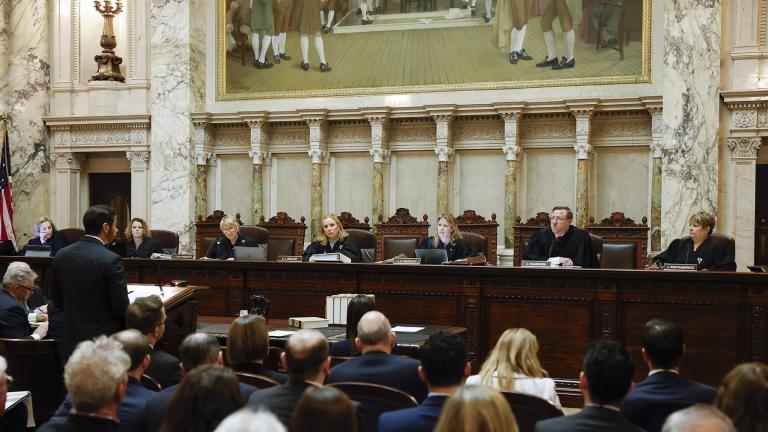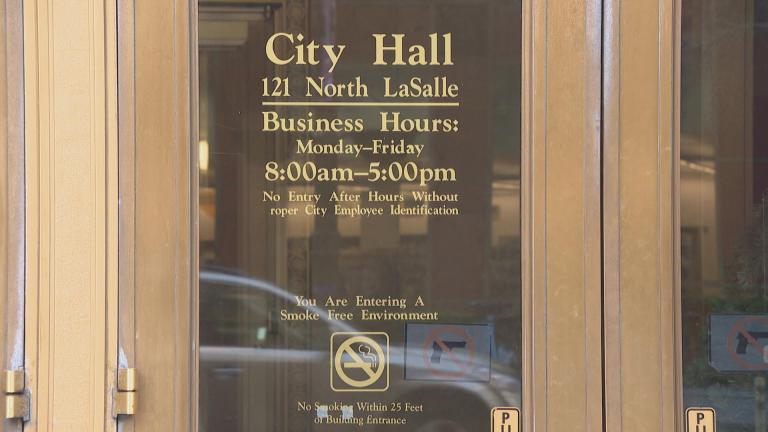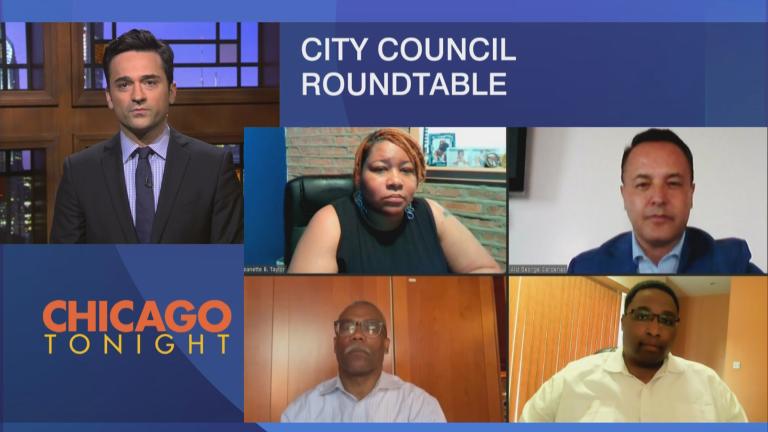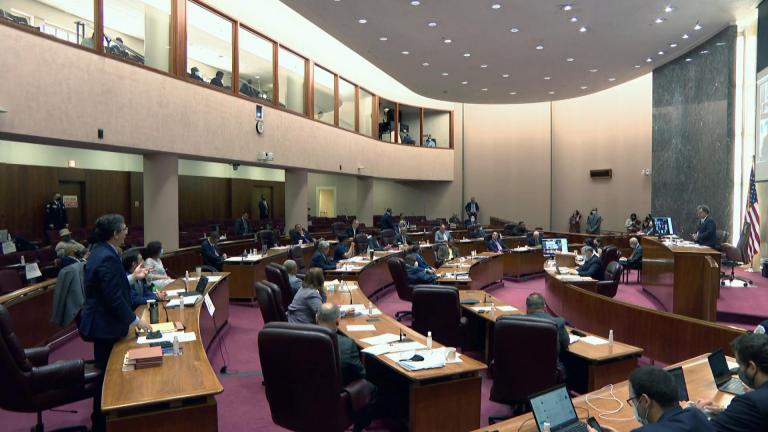Democrats have a stranglehold on the Illinois General Assembly, and Tuesday they muscled through legislation that will help the party maintain power for the coming decade despite objections from community organizations and Republicans that the always-partisan process of redistricting has become outright unscrupulous.
During a special session, the legislature approved a new map (SB927 and HR443) of borders for state legislative districts.
It’s the second time the legislature’s gone through the redistricting process this year.
Gov. J.B. Pritzker in June had already signed into law a new map, but those districts were drawn before the latest census data arrived in mid-August, something critics at the time said would lead to problems.
READ: Pritzker Signs Disputed Legislative Map Into Law
Population shifts – and legal action – forced Democrats’ hand for a redo, given that when using the census data, the number of residents per district in the original version was lopsided.
“You cannot have one district that’s much larger or smaller than another district,” political consultant Frank Calabrese explained. “The map that was passed out of committee today, all the districts are basically the same at 108,000 and change.”
Democrats defended the new maps as improved.
“The adjusted map before you today is one you can be proud to support,” sponsor Rep. Lisa Hernandez, D-Cicero said. “(The map) is consistent with the diversity and values of our great state.”
But there was little time for anyone to verify that claim.
Iterations of the new map (see them here and here) were made public Monday night. It was modified Tuesday morning. And the final version wasn’t made public until just before it was voted on in the House on Tuesday evening.
Those sort of last-minute timing tricks prompted Jay Young of Common Cause Illinois to call the process “undemocratic.”
“Since the beginning, we’ve pleaded with lawmakers to keep the redistricting process open, transparent and accessible to no avail,” Young said in a statement. “At each opportunity in this redistricting process, it’s as if lawmakers went out of their way to ensure the creation of these maps had as little public input as possible. Rejecting an independent bipartisan redistricting commission, politicians chose to draw maps themselves. They did so behind closed doors, with a series of hearings attempting to add a veneer of public access.”
The current maps are the subject of lawsuits both from Republicans and the Mexican American Legal Defense and Education Fund (MALDEF).
Clean energy package incomplete, ethics bill tumbles
There were iterations, too, of energy proposals (various amendments to HB3666) before the Senate put forth a new version (SB18) that passed 39-16 just before 1 a.m. Wednesday.
The complex measure changes how electric rates are determined, gives funding boosts to solar and wind energy companies, creates programs to bring people of color and ex-felons into the energy workforce, and is intended to move Illinois toward 100% renewable energy by 2050.
It also requires all coal and natural gas fired power plants to close by 2045.
The future of the Prairie State Energy Campus in Marissa and the City, Water, Light and Power plant in Springfield had been key sticking points given that environmentalists and Pritzker said they will not agree to any measure that doesn’t mandate carbon-emitting plants shutter by a certain date. The plants, the state chamber of commerce and unions representing plant workers have been fighting from “premature” closure and want to be able to operate longer if they are able to use technology to sequester carbon emissions.
The package also tacks on a charge to ratepayers’ bills that will go to Exelon in exchange for the corporation to keep operating nuclear reactors in Byron, Dresden and Braidwood — plants Exelon said are currently losing money.
Exelon’s Illinois nuclear fleet makes up the majority of the state’s carbon-free energy, and supporters argue the state will have a hard time meeting its clean energy goals should nuclear plants go offline.
Critics are reluctant to giving handouts to renewable companies, in addition to Exelon, given that it’s a profitable corporation and the parent company of Commonwealth Edison, which admitted in a federal deferred prosecution agreement to a long-running bribery scheme related to Illinois’ previous major energy laws, including one which gave Exelon a subsidy to keep open its Clinton and Quad Cities nuclear plants.
“I want to state upfront that his bill has not been written by public utility companies. There are no backroom deals, or insiders unduly influencing this process,” said sponsor Sen. Mike Hastings, D-Frankfort.
The Pritzker administration, which has threatened to veto previous attempts put forth by Senate Democrats, issued a lukewarm assessment of the latest plan early Wednesday.
“The Governor’s Office looks forward to working with members of the House to finalize an energy package that puts consumers and climate first. The Governor’s Office is in discussions with stakeholders to ensure that Prairie State and CWLP’s closure in 2045 includes real interim emissions reductions consistent with previous bill drafts, and is committed to working with the General Assembly to address some drafting errors in the Senate bill that the Governor raised during talks today because they could have unintended legal consequences,” Pritzker’s office said in a statement.
Pritzker on Tuesday morning said an energy deal was “close.”
Should a deal finally culminate after years of negotiating, the legislature will soon have to return for yet another special session.
They may need to anyway, in order to salvage an ethics package.
In the wake of an ethics scandal embroiling several Springfield insiders close to former House Speaker Michael Madigan, Pritzker had promised one.
Rather than sign the measure (SB539) the legislature passed, he used his amendatory veto power to make a minor change to it, tossing the proposal back to the General Assembly.
While the Senate agreed to Pritzker’s changes, in a surprise move, the House voted them down — Republicans were upset that Pritzker didn’t heed the calls of good government advocates to use his veto pen to strengthen what they say are lackluster reforms, and a couple dozen representatives didn’t vote at all, an indication that by the time the House took up the measure on Tuesday night some members had already gone home.
That, for now, leaves the ethics bill dead.
But the House has two weeks to try again, salvaging the package ahead of next year’s elections.
House, Senate override veto
The legislature also used this time in Springfield to do something rare: override a veto issued by Pritzker.
The governor recently rejected a measure (HB684) that would allow private ambulance companies to bill non-emergency transports through the state rather than through managed care organizations contracted by Illinois to coordinate care for patients on Medicaid, the state’s health insurance program for the poor.
Pritzker contended the billing switch could harm vulnerable Medicaid patients, by making it harder for them to get ambulance rides to doctors’ appointments and other services.
READ: Amid Paramedic Shortage, Pritzker Likely to Veto Bill Favored by Ambulance Companies
First the House, then the Senate, easily and overwhelmingly overrode Pritzker’s veto.
The ambulance industry said managed care organizations are so far behind in reimbursing them for rides and they’re so financially stretched that they’re unable to pay emergency medical technicians enough money, contributing to a shortage of ambulance drivers and technicians.
Follow Amanda Vinicky on Twitter: @AmandaVinicky
Note: This story was originally published Tuesday, Aug. 31. It was updated Wednesday morning to include late-night developments.







